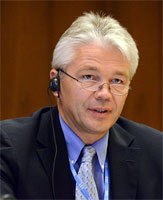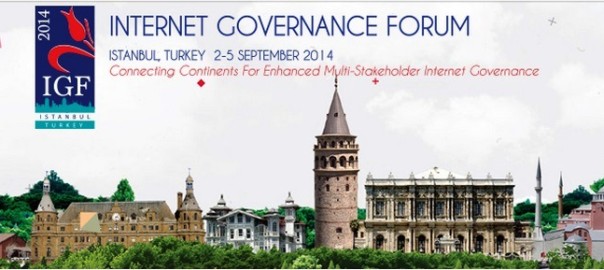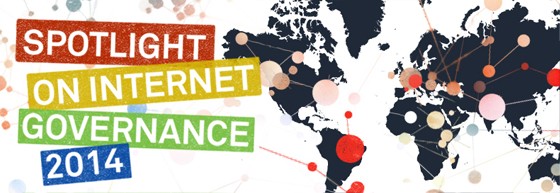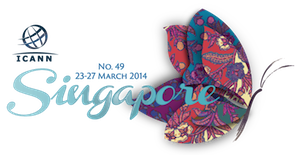 By Janis Karklins, Chair of IGF 2014
By Janis Karklins, Chair of IGF 2014
The ninth edition of the Internet Governance Forum will start at the beginning of September 2014 in Istanbul, Turkey – http://www.igf2014.org.tr/ More than 3000 participants from all continents representing different stakeholder groups (governments, private sector, civil society, technical community, and academia) have registered and plan to participate in this annual international gathering exclusively devoted to Internet governance. Several hundred more stakeholders will participate remotely through a global network of regional hubs.
Why will so many government ministers and parliamentarians, CEOs and Internet
entrepreneurs, civil rights defenders, scholars, engineers and other key stakeholders in
the global Internet community devote one week of their time to engage in discussions
about the future of the Internet?
The answer is clear – all of these stakeholders care about maintaining a free, open, interoperable, stable, secure and trustworthy Internet within a multilateral, democratic, transparent and inclusive framework of multi-stakeholder governance as defined by the Tunis Agenda for the Information Society and endorsed by the World Summit on the Information Society (WSIS) in 2005. The IGF is a unique global forum for convening these multi-stakeholder discussions. It ensures the Internet continues to evolve in the global public interest consistent with these fundamental characteristics and objectives for the benefit of all Internet users.
The Internet governance debate has become ever more complex as we move from the
discussion of infrastructure development into the realm of actual use and, unfortunately,
misuse of the Internet.
The 2014 IGF will consider many complex policy issues, such as IANA stewardship
transition and net neutrality. In addition, key questions such as policies enhancing access,
growth and development on the Internet, bridging the digital divide, freedom of
expression, privacy, and cultural and linguistic diversity will be extensively addressed.
The Istanbul IGF will be the first global gathering of the multi-stakeholder Internet
community after the ground-breaking NETmundial conference hosted by Brazil in April
2014, which has become a reference point for multi-stakeholder cooperation exploring
the boundaries of collective and democratic decision-making. The IGF was prominently
supported by the NETmundial and the Istanbul meeting seeks to meet the high
expectations of the Internet governance community.
The preparatory process for the meeting, led by its Multi-stakeholder Advisory Group and
guided by the wider global community through an open consultation process, has
introduced several important innovations into the program of the 2014 IGF. These include
identifying more focused and concrete outcomes and the promotion of best practices on
a range of important issues such as the multi-stakeholder model of Internet governance,
child online protection, local content creation, ensuring security and combatting spam.
The Istanbul IGF will also, for the first time, aim to coordinate and advance solutions to
identified challenges, primarily through linking the annual global IGF with the many
regional and national IGF initiatives which have emerged in the last 10 years. It will also
aim to pick up and explore further issues at the invitation of other organisations and fora. The IGF also strengthens remote participation opportunities in order to increase outreach The answer is clear – all of these stakeholders care about maintaining a free, open,
interoperable, stable, secure and trustworthy Internet within a multilateral, democratic,
transparent and inclusive framework of multi-stakeholder governance as defined by the
Tunis Agenda for the Information Society and endorsed by the World Summit on the
Information Society (WSIS) in 2005. The IGF is a unique global forum for convening these
multi-stakeholder discussions. It ensures the Internet continues to evolve in the global
public interest consistent with these fundamental characteristics and objectives for the
benefit of all Internet users.
The Internet governance debate has become ever more complex as we move from the
discussion of infrastructure development into the realm of actual use and, unfortunately,
misuse of the Internet.
The 2014 IGF will consider many complex policy issues, such as IANA stewardship
transition and net neutrality. In addition, key questions such as policies enhancing access,
growth and development on the Internet, bridging the digital divide, freedom of
expression, privacy, and cultural and linguistic diversity will be extensively addressed.
The Istanbul IGF will be the first global gathering of the multi-stakeholder Internet
community after the ground-breaking NETmundial conference hosted by Brazil in April
2014, which has become a reference point for multi-stakeholder cooperation exploring
the boundaries of collective and democratic decision-making. The IGF was prominently
supported by the NETmundial and the Istanbul meeting seeks to meet the high
expectations of the Internet governance community.
The preparatory process for the meeting, led by its Multi-stakeholder Advisory Group and
guided by the wider global community through an open consultation process, has
introduced several important innovations into the program of the 2014 IGF. These include
identifying more focused and concrete outcomes and the promotion of best practices on
a range of important issues such as the multi-stakeholder model of Internet governance,
child online protection, local content creation, ensuring security and combatting spam.
The Istanbul IGF will also, for the first time, aim to coordinate and advance solutions to
identified challenges, primarily through linking the annual global IGF with the many
regional and national IGF initiatives which have emerged in the last 10 years. It will also
aim to pick up and explore further issues at the invitation of other organisations and fora. The IGF also strengthens remote participation opportunities in order to increase outreach The answer is clear – all of these stakeholders care about maintaining a free, open,
interoperable, stable, secure and trustworthy Internet within a multilateral, democratic,
transparent and inclusive framework of multi-stakeholder governance as defined by the
Tunis Agenda for the Information Society and endorsed by the World Summit on the
Information Society (WSIS) in 2005. The IGF is a unique global forum for convening these
multi-stakeholder discussions. It ensures the Internet continues to evolve in the global
public interest consistent with these fundamental characteristics and objectives for the
benefit of all Internet users.
The Internet governance debate has become ever more complex as we move from the
discussion of infrastructure development into the realm of actual use and, unfortunately,
misuse of the Internet.
The 2014 IGF will consider many complex policy issues, such as IANA stewardship
transition and net neutrality. In addition, key questions such as policies enhancing access,
growth and development on the Internet, bridging the digital divide, freedom of
expression, privacy, and cultural and linguistic diversity will be extensively addressed.
The Istanbul IGF will be the first global gathering of the multi-stakeholder Internet
community after the ground-breaking NETmundial conference hosted by Brazil in April
2014, which has become a reference point for multi-stakeholder cooperation exploring
the boundaries of collective and democratic decision-making. The IGF was prominently
supported by the NETmundial and the Istanbul meeting seeks to meet the high
expectations of the Internet governance community.
The preparatory process for the meeting, led by its Multi-stakeholder Advisory Group and
guided by the wider global community through an open consultation process, has
introduced several important innovations into the program of the 2014 IGF. These include
identifying more focused and concrete outcomes and the promotion of best practices on
a range of important issues such as the multi-stakeholder model of Internet governance,
child online protection, local content creation, ensuring security and combatting spam.
The Istanbul IGF will also, for the first time, aim to coordinate and advance solutions to
identified challenges, primarily through linking the annual global IGF with the many
regional and national IGF initiatives which have emerged in the last 10 years. It will also
aim to pick up and explore further issues at the invitation of other organisations and fora. The IGF also strengthens remote participation opportunities in order to increase outreach and improve its capacity-building aspects.
View more full text from the IGF Chair at Chairs blog IGF 2014






